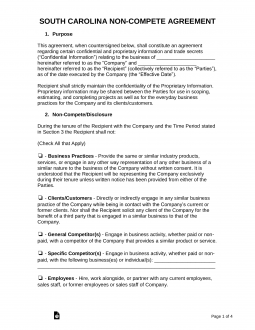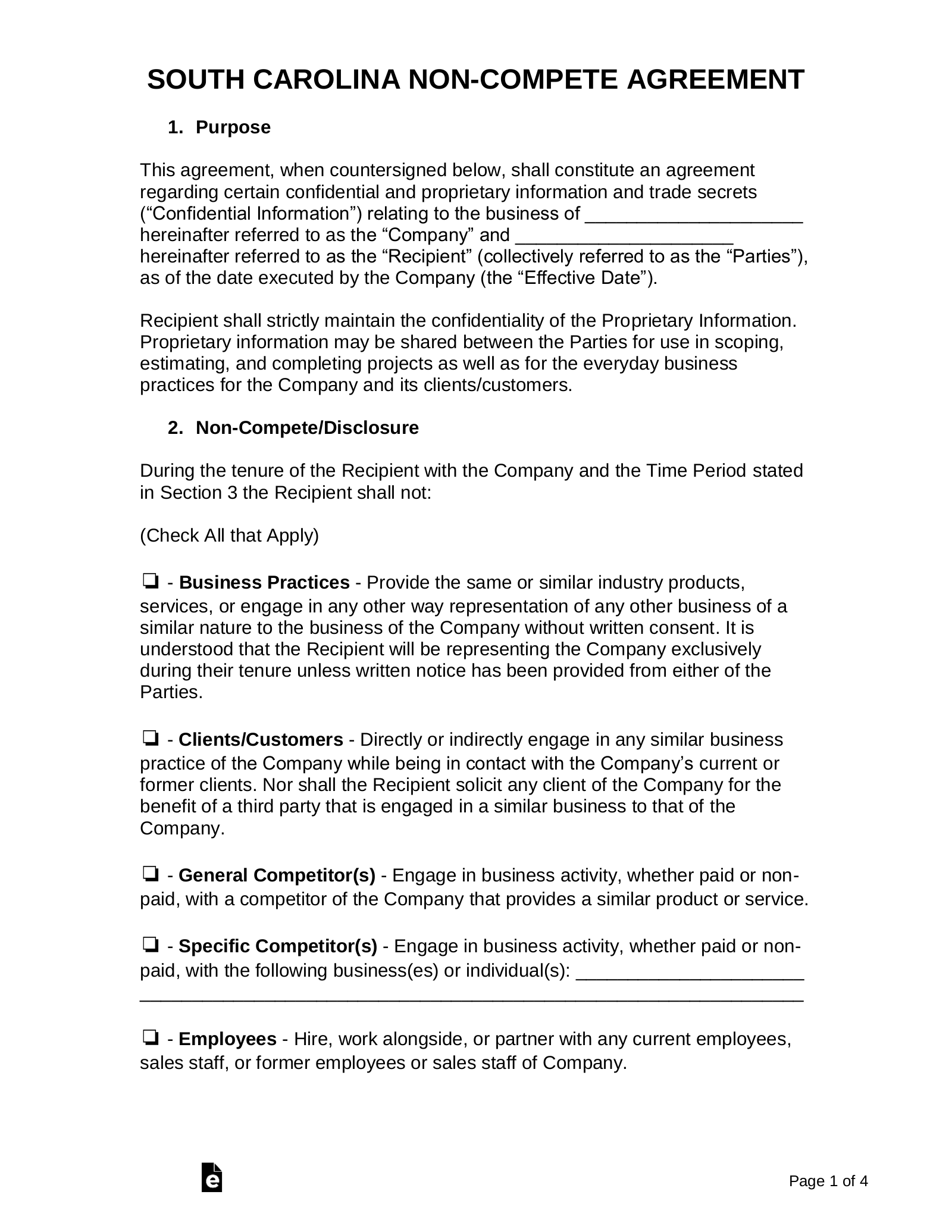Updated February 27, 2024
A South Carolina non-compete agreement allows an employer to protect a legitimate business interest by restricting their ability to work in the same industry. A non-compete must also balance an employer’s legitimate interests and an employee’s right to use their talents to earn a living.
A non-compete is specifically restricted to a time and place.
Laws
Legally Enforceable?
Yes, a non-compete is legally enforceable if the non-compete is:[1]
- Reasonable in the sense that it is no greater than is necessary to protect the employer’s legitimate business interest;
- From the standpoint of the employee, the restraint must be reasonable in the sense that it is not unduly harsh and oppressive in curtailing his legitimate efforts to earn a livelihood;
- Partial or restrictive in its operation, either as to time or place;
- Supported by valuable consideration; and
- The restraint is reasonable from the standpoint of a sound public.
Balance Test
The Supreme Court has ruled a non-compete has a balance between the employer protecting themselves and the employee’s right to earn a living.[2]
“While recognizing the legitimate interests of a business in protecting its clientele and goodwill, we are equally concerned with the right of a person to use his talents to earn a living.”
Continued Employment
If a non-compete is presented to an employee after being hired, there must be “new consideration” presented such as their position or duties.[3]
“If an employment relationship already exists without a covenant not to compete, any such future covenant must be based upon new consideration.”
Attorneys (prohibited)
An attorney is prohibited from entering into any type of agreement that restricts their right to practice law.[4]
Maximum Term
3 years was deemed “not obnoxious” by the Supreme Court.[5]
Blue Penciling
The courts have adopted a “blue pencil test” that disregards excessive restraints found in a non-compete if the agreement is severable. For example, a court is able to strike out unreasonable provisions in a non-compete if it includes a severability clause.[6]


